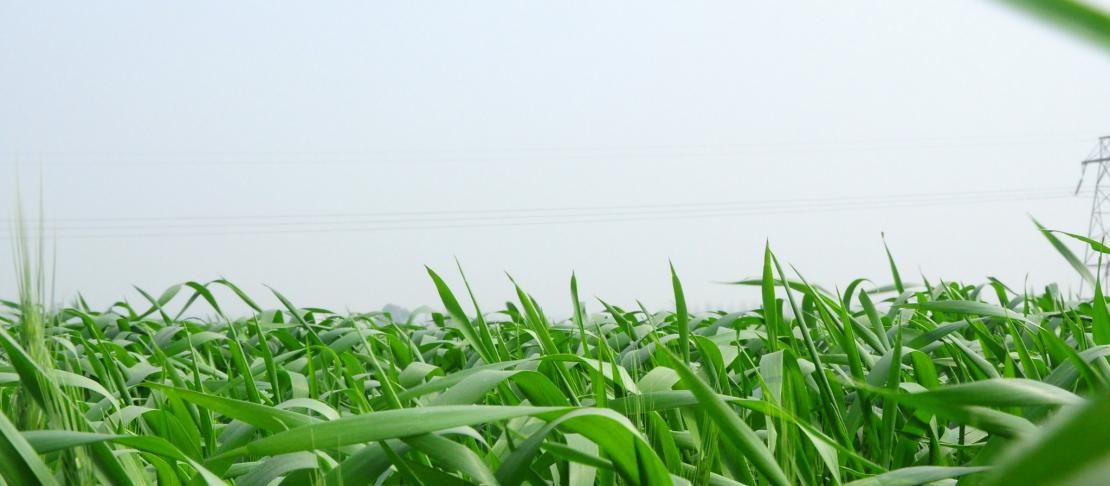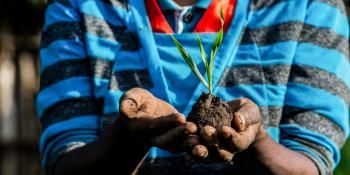Three questions on climate change mitigation in agriculture

by Jeff Haskins and Dan Klotz
At the Climate Smart Agriculture in Asia conference last week, Alex De Pinto (a research fellow at the International Food Policy Research Institute - IFPRI) led a breakout discussion on mitigating climate change impacts with experts from India, Laos, the Philippines, Nepal, Sri Lanka, and Japan. He spoke about the experience afterwards.
Alex is an environmental and natural resource economist currently conducting and managing research projects on climate change mitigation in agriculture in Morocco, Ghana, Mozambique, and Vietnam and is also conducting research on the economics of land degradation.
Q: There were many different countries represented at the discussion. What were the common themes?
A: One of the things that came across was the need for basic data on climate change mitigation and the fact that there has to be agreement on the way this data is collected so that it is comparable. Also, it seemed that the need to approach the situation at the landscape level, looking at all of the factors in play, appeared to have consensus. Lastly, everyone at the table identified the problem of finding the proper incentive mechanisms for the farmers to change. These incentives should not just compensate farmers to adopt best practices but as a way of motivating farmers by lowering barriers. Many would like to lower their impact but they just don’t have either the credit or the capability of starting the particular practices.
Q: Why the need for data when the debate about climate change has been taking place for so long?
A: It’s not surprising at all as the idea of focusing on greenhouse gas emissions in agriculture is relatively new. People may have looked at methane emissions or soil organic carbon but they were looking at these things with productivity as the final goal. And when you start keeping track of greenhouse gasses then the way you measure these things shifts. For instance, if you look at soil organic carbon in terms of crop productivity you only look at the first 15-20 cm. But if you want to keep track of what actually happens to soil organic carbon, you have to go deeper. Agronomists have looked at carbon in soils forever, but the goal was to enhance productivity, it wasn’t carbon per se, and now that becomes the goal.
Q: How do you think Asia compares with the rest of the world in adapting agriculture to the changing climate?
A: I wouldn’t be able to rank the regions as there are different challenges because the agricultural systems and crops are different. If we can provide decision makers with the proper tools to understand the alternatives then this area of the world has just as much probability of adapting and mitigating as any part of the world. One problem is that you are facing different political realities. A command and control economy like Vietnam has different challenges compared to an open economy that is completely based on market mechanisms. These might be real differences but the practicalities of how you do it technically and how you measure success on the ground, I don’t think that is different.
This post was written by Jeff Haskins and Dan Klotz from Burness Communications, reporting from the Climate-Smart Agriculture Conference in Bangkok, Thailand. More updates from the conference will be published here on this blog, and on Twitter @Cgiarclimate and Facebook.

